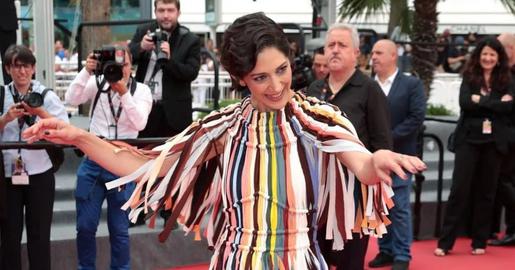Dear friends
So, President Trump finally made the announcement we were waiting for. He would not be re-certifying the nuclear deal, despite appeals from many people in his own administration and allies around the world. He stopped short of labeling the Revolutionary Guards a terrorist organization, but he announced more sanctions against what he called “the Iranian Supreme Leader's corrupt personal terror force and militia.” His speech sent predictable shockwaves around the world, with everyone wondering what will happen next, and how Congress will respond.
But many Iranians only remember two words from his speech: Arabian Gulf. The Donald succeeded to anger every Iranian regardless of their political persuasion with those two words. Thousands of Iranians went on social media to vent, sharing images and videos of previous presidents using the correct term for the body of water on the southern border of Iran, as well as medals and ceremonies honoring soldiers who served in the Persian Gulf, and even a map showing that the name predates the discovery of the Americas. Whether Trump did it on purpose or not, the use of the word “Arabian” has certainly alienated many Iranians who agreed with the rest of his speech.
It’s rare to read or hear the opinions of Iranian hardliners on English websites. They usually don’t give interviews to Iranian media in the diaspora, and foreign reporters have a hard time interviewing them in Iran. But my colleague Shima Shahrabi managed to interview conservative politician Rafat Bayat, a former member of the parliament. Ms. Bayat’s take on Trump’s speech is typical of many Iranian hardliners, who are implicitly and explicitly excited about the failure of the nuclear deal.
Immediately after the speech, President Rouhani took to the podium to denounce Trump, and to reassure the Iranian public that the US president alone could not unravel the nuclear deal, and to re-assert the Islamic Republic’s commitment to it. After all, Rouhani considers the nuclear deal (the Joint Comprehensive Plan of Action) to be one of his great achievements, and he’s not about to let it go. Although he praised the Revolutionary Guards’ role in protecting “oppressed nations” and fighting terrorism, he was silent on the sanctions. The political landscape he’ll face in the coming months will be fierce, so he’s obviously biding his time until the new battle begins in earnest.
Whether you agree that the Revolutionary Guards Corps is a terrorist organization or not, you can’t deny that they’ve been supporting terrorist groups, such as Hezbollah and Hamas, and use terrorist tactics such as hostage-taking to prove their relevance. One of the hostages is communications professional Nizar Zakka. He’s a Lebanese citizen who lives in the US. Zakka was invited by President Rouhani’s government to attend a conference in Iran in 2015. The Guards arrested him during his visit and he’s now serving a 10-year prison sentence. Lebanon’s President Michel Aoun, an ally of Iran and Hezbollah, will be traveling to Iran soon, and Zakka’s family hope he’ll speak up about his ordeal and call on Tehran to release him.
Zakka, like several other prisoners, is being held on fabricated charges, and has been on hunger strike for the last two weeks. His family are increasingly worried about his health. This week, we also looked at the legality of the charges against another prisoner, Omid Alishenas. There’s no evidence to prove he’s guilty of insulting the Supreme Leader or other crimes, and some of the accusations against him are frankly ridiculous. One of his crimes is sharing a copy of my film To Light a Candle, about the Baha’i underground university in Iran.
Sunday was the UN’s International Day of Rural Women, but try telling that to women in Iran’s provinces — the rice growers, tobacco pickers, and agricultural workers who work day in and day out for very little money and without job security. For them, it's just another day of hardship. Although six million Iranian women work in agriculture, only one percent of them own any land. It's another shocking example of the extraordinary discrimination and inequality at play in Iran today, and why it’s so important IranWire continues to report on human rights, and highlight the violations so endemic in Iranian society.
As always, please let me know if you have any comments.
Warm regards
Maziar
visit the accountability section
In this section of Iran Wire, you can contact the officials and launch your campaign for various problems




















comments